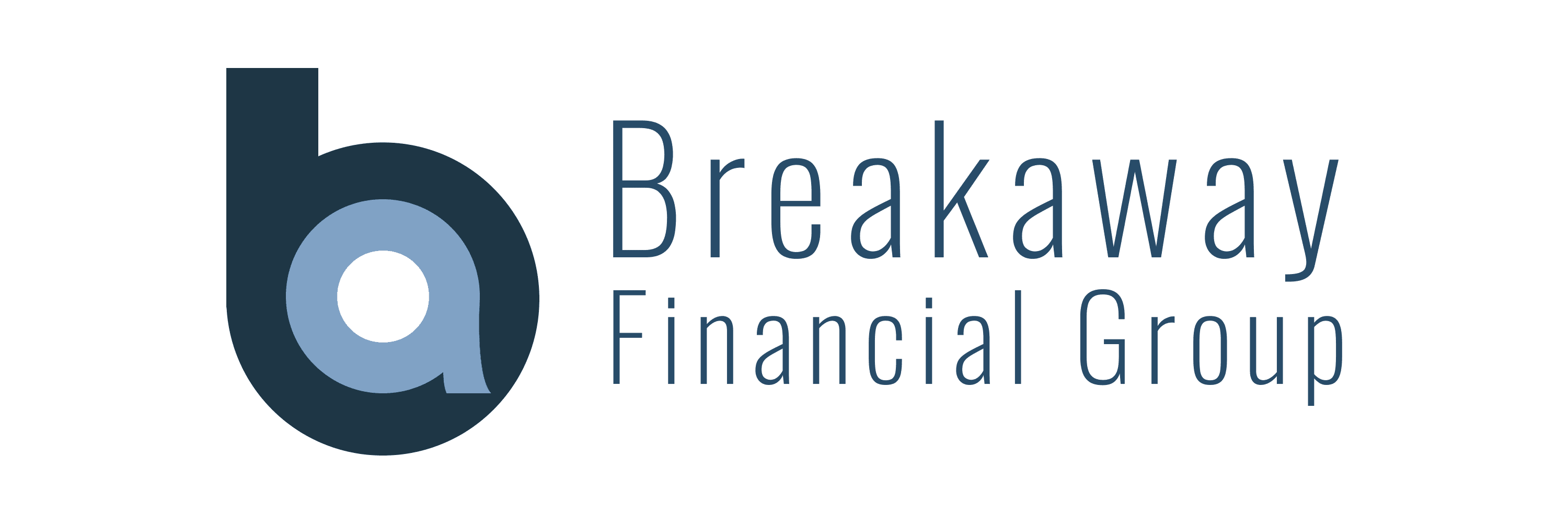Imagine unlocking the secrets to financial success and achieving the life you’ve always dreamed of. The path to wealth and financial independence is within your reach, and it all begins with learning “how to get rich.” Establishing a solid foundation, maximizing your earning potential, and investing smartly are crucial steps in this journey. Ready to embark on this journey to riches? Let’s dive into the proven strategies to help you achieve financial success and learn “how to get rich.”
Key Takeaways
Establish a solid financial foundation and budget to gain control of your finances.
Maximize earning potential by exploring career progression, side hustles & business ownership.
Invest smartly and diversify your portfolio to reduce risk & maximize returns for sustainable wealth.
Establish a Solid Financial Foundation

Building a solid financial foundation is the bedrock of financial success. Consistently spending less than you earn allows you to save and invest more, increasing your wealth. Spending less than your income creates a financial safety net, allowing you to make strategic decisions and concentrate on your long-term goals.
Establishing a financial foundation involves three key components: budgeting, tracking expenses, and creating an emergency fund. These components work together to ensure financial stability, allowing you to confidently pursue wealth-building opportunities.
Budgeting
Budgeting is a fundamental tool for attaining financial success. Understanding the key principles of effective budgeting and experimenting with different budgeting methods allows you to create a budget tailored to your financial goals. This will help you allocate your income towards essential expenses, savings, and investments, ensuring that you’re on the right track towards financial independence.
Several software and tools can help you manage your finances effectively, including:
QuickBooks
Mint
Google Sheets
Goodbudget
YNAB (You Need A Budget)
Using these tools simplifies budgeting, aids in maintaining your financial path, and accelerates the achievement of your financial objectives.
Expense Tracking
Tracking expenses plays a significant role in personal finance, providing a complete outlook on your spending habits and financial status. Keeping a record of expenses allows for the following:
Easy identification of overspending areas, enabling necessary budget adjustments
Setting achievable financial goals
Making informed decisions about saving and investing
Expense tracking is essential for maintaining financial stability and achieving your financial goals.
To track expenses effectively, consider the following steps:
Check your account statements and categorize your expenses.
Create a budget to allocate your income and track your spending.
Use expense tracker apps like Mint, Goodbudget, or You Need a Budget (YNAB) to monitor expenses.
Track your expenses as you spend using a digital ledger or a notebook and pen.
By implementing these strategies, you can effectively manage your expenses, identify areas for cost reduction, nurture beneficial financial habits, and enhance your overall financial well-being.
Emergency Fund
An emergency fund is a smart protection against resorting to high-interest credit card debt during emergencies. It consists of highly liquid cash, readily accessible in a low-risk savings vehicle, such as a savings account, and funded at levels that ensure financial security. Having an emergency fund offers tremendous benefits, such as:
Financial security
Peace of mind
Flexibility
Independence
All of which can help you achieve your long-term goals, ensuring all your money is well-invested.
To establish an emergency fund, follow these steps:
Initiate smaller savings goals.
Start with frequent minor contributions.
Create a budget to enhance savings.
Determine your emergency fund target.
Automate savings through direct deposit.
Incrementally increase your monthly savings target.
Use unexpected cash inflows to bolster your emergency fund.
Aim to have three to six months of expenses in your fund to feel secure, but adjust the amount to whatever makes you feel comfortable, ensuring you have as much money as needed.
Maximize Your Earning Potential

Achieving financial success significantly relies on maximizing your earning potential. The exciting process of unleashing your full earning potential involves income and wealth augmentation through career progression, side jobs, and business ownership. Exploring these avenues allows for creating new income streams and accelerated wealth growth, fast-tracking your journey toward financial independence and helping you accumulate wealth.
Strategically advancing your career, exploring side hustles, and diving into entrepreneurship can open up many exciting opportunities, such as:
freelancing
starting a business
real estate
These ventures can help you generate additional income and achieve your financial goals more quickly.
Career Advancement
Pursuing career advancement opportunities, such as promotions or job changes, can increase your salary and help you achieve financial success. To strategically advance your career and increase your income, consider:
Networking wisely
Investing in your personal growth
Mapping out your career advancement
Building a robust professional network
Being open to change and new opportunities
Continuous learning and professional advice enable smart decision-making and the ability to seize new career opportunities. Investing in your professional development can unlock your full potential and achieve greater heights in your career, ultimately leading to increased earnings and financial success.
Side Hustles
Side jobs offer exhilarating supplementary income streams that accelerate the achievement of your financial goals. By engaging in side hustles, you can leverage your skills and passions to generate extra income, supplementing your primary job. This can help you reach your financial objectives faster and provide financial security.
Balancing a side job with a full-time position successfully requires:
Wise time management and prioritization
Setting realistic goals
Delegation and outsourcing as needed
Self-care
Open employer communication
There are numerous side hustle opportunities available, such as freelancing, consulting, teaching, or starting your own business. The key is to find a side hustle that matches your skills and interests while allowing you to achieve your financial goals.
Entrepreneurship
Initiating a business can result in substantial wealth generation, requiring time, effort, and managing risks. Entrepreneurship offers a wealth of opportunities and challenges, such as:
Identifying great locations
Generating positive cash flows
Keeping vacancies low
Attracting quality tenants
Creating liquidity
Anticipating market fluctuations
To get started on your journey to success as a business owner, follow these steps:
Conduct market research
Find the right business opportunity
Develop a solid business idea
Write a comprehensive business plan
Choose a suitable business structure
Obtain the necessary licenses and permits
By taking these steps, you can create a thriving business that contributes to your wealth and financial success, ultimately helping you get rich.
Invest Smartly and Diversify Your Portfolio

Investing wisely and diversifying your portfolio is critical for risk minimization and return maximization. Investing aims to buy assets that can generate long-term financial returns. Also, this will help build sustainable wealth in the future. Investing in different asset classes and industries can reduce the risk associated with your investments and increase the potential for higher returns.
Smart investing involves considering the stock market, building wealth through real estate, and maintaining a diversified portfolio. Each investment strategy offers unique benefits and can help you achieve your financial goals more quickly.
Stock Market
Stock market investments can offer long-term growth and passive income through dividends. To get the most out of your stock market investments, follow these steps:
Decide how involved you’d like to be in managing your investments.
Open an investment account with a brokerage firm.
Pick a strategy that matches your goals and risk tolerance.
Allocate a budget for your investments.
Keep your focus on the long term.
Keeping abreast of market trends and financial news enables educated investment decisions, optimizing your stock market investment returns. Additionally, consider investing in stocks with a history of strong growth prospects, such as:
Hartford Financial Services Group (HIG)
Home Depot (HD)
Lockheed Martin (LMT)
AbbVie Inc. (ABBV)
Broadcom Inc. (AVGO)
Cheniere Energy Partners LP (CQP)
Tesla (TSLA)
Shopify (SHOP)
Square (SQ)
Etsy (ETSY)
Building Wealth with Real Estate
Real estate investments hold the potential for income generation and capital value increment. Through rental income and property appreciation, you can leverage real estate investments to build wealth. However, it’s essential to recognize the potential risks and difficulties involved and consider all aspects before investing in real estate.
Success in real estate investment requires consideration of various factors, including:
Property location
Property valuation
Investment purpose and timeframe
Anticipated cash flows and profit opportunities
Property type
Budget
Market research
Risk assessment
By carefully evaluating these factors and staying informed about market trends, you can make wise real estate investment decisions that contribute to your wealth-building journey.
Diversified Portfolio
A diversified portfolio is a core component of any successful investment strategy. It can help reduce risk, maximize potential returns, and stabilize your investment strategy. To create a diversified portfolio, consider the following:
Asset allocation
Diversifying within asset classes
Geographic diversification
Risk management
Regular review and rebalancing
By implementing these strategies, you can achieve the best results for your investment portfolio.
You can diversify your investments with various investment options, including equity investments, such as:
Equities (stocks)
Fixed-income securities (bonds)
Cash equivalents
Marketable commodities
Real estate
Investing in various asset classes and industries reduces the risk associated with your investments and increases the potential for higher returns, ultimately contributing to your financial success.
Eliminate High-Interest Debt and Avoid Unnecessary Expenses

Clearing high-interest debt and curtailing unnecessary expenses is critical to freeing up more resources for savings and investments. Cutting spending is a great way to save money. Investing that saved money can increase your wealth in the long run. To achieve financial success, focus on tackling high-interest debt, such as credit card balances and car loans, and reducing unnecessary spending.
Prioritizing high-interest debt clearance and reducing non-essential expenses enhances your financial situation, enabling better resource allocation toward wealth-building opportunities.
Tackling High-Interest Debt
High-interest debt can negatively impact your financial health, escalating borrowing costs and complicating your financial goals. To tackle high-interest debt, consider the following strategies:
Debt consolidation
Debt settlement
Debt management plans
Bankruptcy
By paying off high-interest debt, you can reduce interest costs, improve your financial health, and free up more money for savings and investments.
It’s essential to manage high-interest debt to maintain a healthy financial situation. Be aware of the most common forms of high-interest debt, such as credit card debt, personal loans, payday loans, and certain student loans. Utilize resources such as nonprofit credit counseling agencies, credit counseling organizations, and debt management resources to manage and eliminate high-interest debt effectively.
Car Loans and Credit Card Bills
Car loans and credit card bills can result in prolonged debt and financial stress. To avoid these pitfalls, consider paying off credit card bills and keeping just one or two, making sure only to charge what you can pay off in two or three months for a successful payoff. As for car loans, explore your options and compare interest rates to find the best deal.
By steering clear of car loans and credit card bills, you can avoid long-term debt and financial strain, allowing you to focus on saving and investing for your financial goals. Prioritize eliminating high-interest debt and cutting back on non-essential expenses to improve your financial situation and allocate your resources towards wealth-building opportunities.
Reducing Unnecessary Spending
Reducing unnecessary spending is critical for saving more and investing in wealth-building opportunities. To identify and cut unnecessary spending, you can follow these steps:
Review your monthly expenses.
Categorize your expenses.
Consider which expenses are not essential or don’t align with your financial goals.
Practice self-control and moderation in your spending habits.
Regularly revisit and adjust your budget to align with your financial priorities.
Following these steps can effectively reduce unnecessary spending and improve your financial situation.
Reducing unnecessary spending can balance your budget, set aside money for future objectives, and boost your financial stability. Making lifestyle changes such as downsizing housing, cutting back on dining out, or finding alternative forms of entertainment can also reduce unnecessary spending and help you achieve your financial goals.
Seek Professional Advice and Continuously Learn

Consulting professionals and continuous learning are essential to make knowledgeable financial decisions and stay abreast of market trends. Consult financial advisors to develop a personalized financial plan and receive investment guidance. Additionally, stay informed about market trends and financial news to make educated investment decisions.
Acquiring additional education or certifications enhances your earning potential and financial literacy. This can lead to better job opportunities, higher income, and a greater understanding of personal finance, ultimately contributing to your journey toward financial success.
Financial Advisors
Consulting with financial advisors can help you:
Develop a personalized financial plan
Receive guidance on investments
Get advice on budgeting
Learn about emergency funds
Receive guidance on career advancement
Get advice on side hustles and entrepreneurship
Learn about the stock market
Receive guidance on real estate
Learn about diversified portfolios
Financial advisors can help you maximize your money, including managing your retirement account.
To find a trustworthy and competent financial advisor, follow these steps:
Do your research
Ask questions
Look for an advisor who is certified and has experience in the areas you need help with
Ask for references
Check their credentials
Ultimately, ensure the advisor is a good fit for you and your financial goals, as this is essential in ensuring the best possible outcome.
Staying Informed
Staying informed about market trends and financial news is advantageous, as it enables investors to:
Make informed investment decisions
Assess potential risks and returns
Spot investment opportunities
Adjust their investment strategies accordingly
Investors can stay updated and make more informed decisions by studying economic data and indicators such as GDP growth, unemployment rate, and market behavior.
To stay up-to-date with financial news and market trends, be sure to check out:
Bloomberg
CNBC
MarketWatch
Financial Times
Reuters
These reputable financial news resources can provide valuable information and insights to help you make wise investment decisions and maximize your investment returns.
Additional Education
Pursuing additional education or certifications can:
Increase your earning potential
Improve your financial knowledge
Unlock better job opportunities
Lead to higher income
By gaining high-income skills through additional education, you can improve your financial situation and open doors to a brighter future.
Some awesome online platforms for obtaining additional education or certifications include:
Coursera
Udemy
edX
Alison
Udacity
You can further enhance your financial success by continuously learning and expanding your skillset.
Summary
In conclusion, achieving financial success and getting rich is a journey that requires dedication, discipline, and the adoption of proven strategies. By establishing a solid financial foundation, maximizing your earning potential, investing smartly, eliminating high-interest debt, and seeking professional advice, you can pave the way to financial independence and wealth. Remember, the key to success lies in your ability to take control of your financial future and continuously learn and adapt to the ever-evolving world of personal finance.
Frequently Asked Questions
What is a fast way to become rich?
To become rich quickly, focus on investing in the stock market, creating and growing a business, and saving diligently. While there’s no guaranteed path to wealth, combining these strategies can help you get rich in 25 years or less.
How to be a millionaire in 5 years?
Take action now and create a wealth-building plan, maximize employer contributions, ask for a raise, save a significant portion of your earnings, develop multiple income streams, and eliminate debt to become a millionaire in five years or less!
What are the key principles of effective budgeting?
Effective budgeting involves setting limits, aligning with goals, communicating openly, analyzing thoroughly, and implementing financial planning – all of which help ensure a successful budget.
How can I effectively track my expenses?
To effectively track your expenses, create a budget and use expense tracker apps to track your spending in real time. Additionally, open separate bank accounts for better organization and review your account statements regularly.
What are some examples of high-interest debt I should be aware of?
High-interest debt can come in many forms, including credit cards, personal loans, payday loans, and some types of student loans – all of which you should be aware of.





